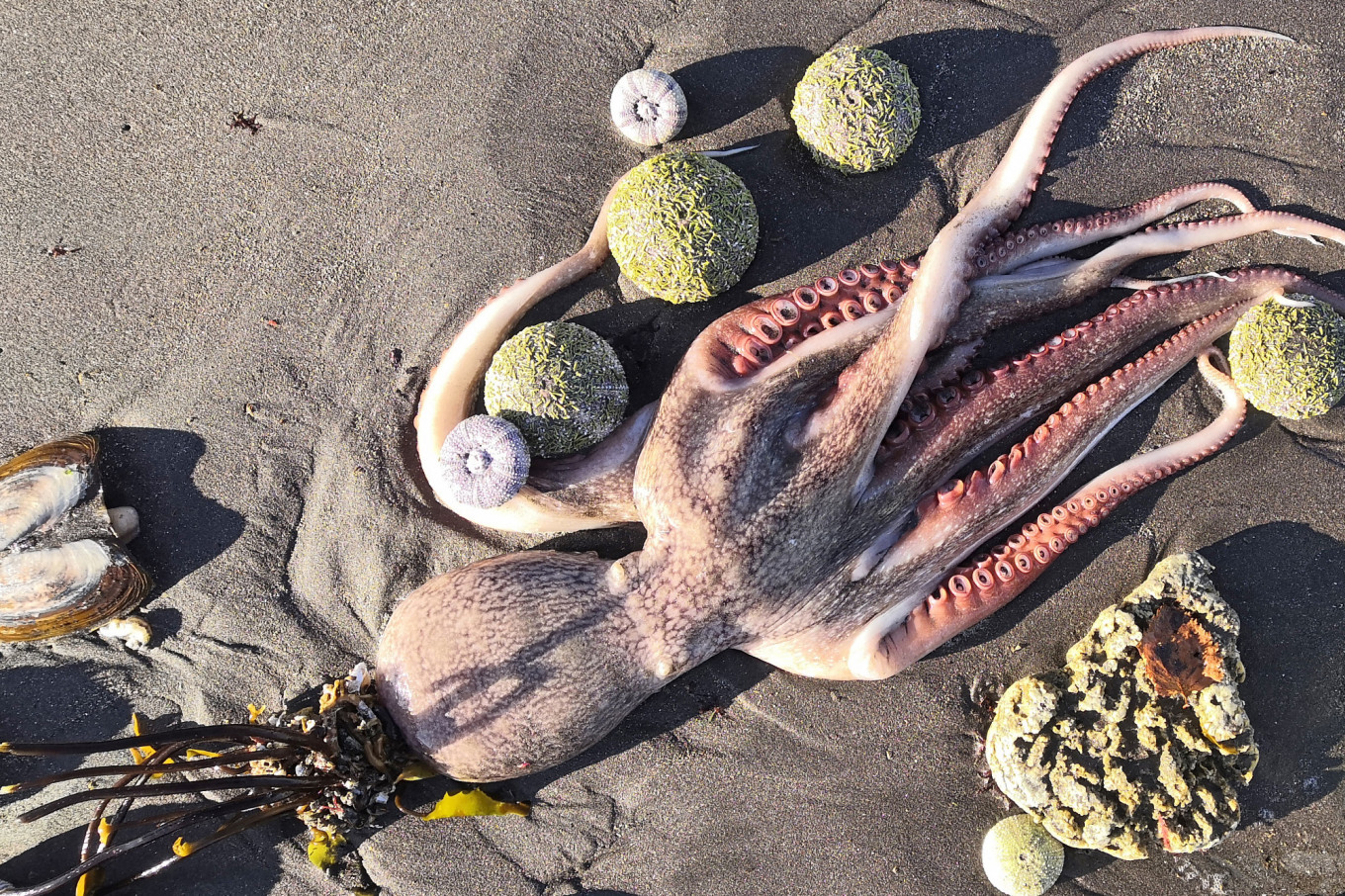
Fears are mounting over an environmental disaster in Russia’s Far East after locals reported finding dozens of dead sea animals washed onto a beach from the Pacific Ocean.
Greenpeace said tests conducted on water samples taken from around Khalaktyrsky beach in Russia’s Kamchatka region showed petroleum levels four times higher than usual, and phenol levels were also 2.5 times higher.
“The scale of the contamination has not yet been determined, but the fact that dead animals are found all along the coast confirms the seriousness of the situation,” the organization said in a statement which described the incident as an “ecological catastrophe.”
Images shared across social media — including by popular blogger Yuri Dud — over the weekend showed dead octopuses, large fish, sea urchins, crabs, and other marine animals had washed up on the shore.
The cause of the disaster is unknown. No industrial accidents or oil spills have been officially reported in the area, and environmental activists are demanding an investigation to determine what happened and the extent of the contamination.
Russia’s TASS news agency reported a leak from a commercial oil tanker was the cause of the contamination, citing unnamed sources. But environmentalists have questioned the idea of an oil leak, telling independent media outlet Novaya Gazeta they fear possibile pesticide contamination from a nearby highly-secretive plant.
Local authorities initially tried to downplay the incident, publishing videos of a spotless beach, stating: “The color of the water is normal, the smell of the air is normal, the beach is completely clean.”
However, as images continued to resurface, that approach changed over the weekend. Speaking to reporters on the beach Sunday, Kamchatka governor Vladimir Solodov said the region was launching investigations into the contamination and would take more samples of the beach, animals and sea water for further testing. He threatened to fire anybody from the local administration found to have tried to either cover-up or embellish the situation.
Irina Yarovaya, deputy chair of Russia’s State Duma, said an administrative case has been opened, alleging that local authorities did not take steps to prevent the incident and questioning the methods used to collect samples.
Locals say they first noticed a potential problem three weeks ago when surfers and swimmers started feeling ill after going into the water. Surfer Anton Morozov reported experiencing “blurred vision, dry and painful eyes and a sore throat.”
After returning to the ocean this weekend he said the situation had now grown worse, writing on Instagram: “The water doesn’t smell like the ocean, it’s sticky, bitter and dirty. Fish are dead on the shore.”
Environmental issues have become a thorny issue for the Russian authorities in recent years, with a number of local protests having broken out over issues such as landfills and garbage disposal.
